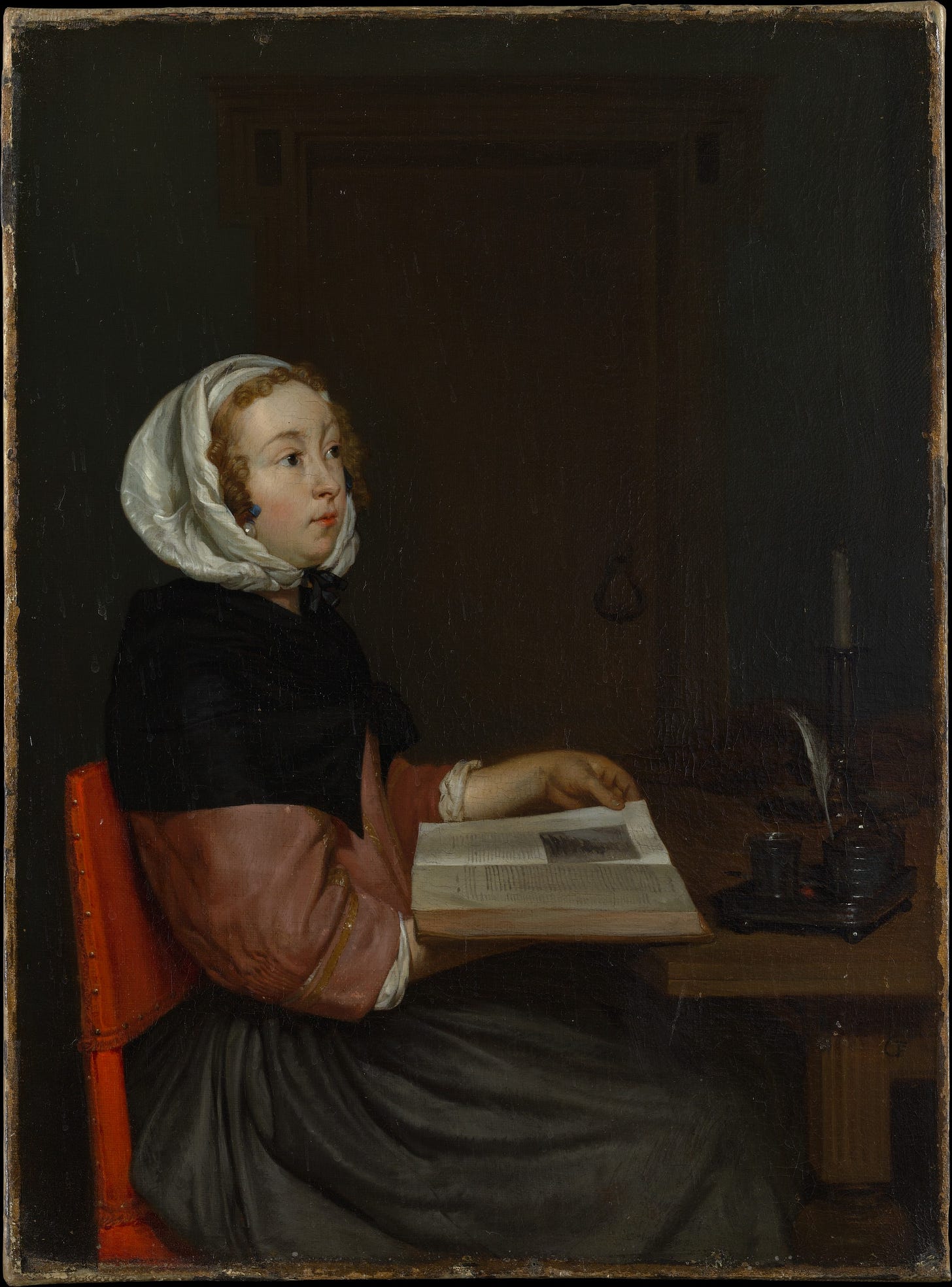Does anyone even know whether students can still read a lot?
just accept uncertainty
Every time I talk to an academic, or email with one of them, which is not infrequently thanks to this blog, I ask them the same thing. Do your students still read? If you read the news, or some Substacks, you will get the impression that the answer is: “no”. But the answers I get range from “they struggle read a novella” to “everything is basically fine” or “the best students are just as good” or “it’s nothing like as bad as reported”. I am surprised how often I hear the positive answers, because I have become moderately more pessimistic about this trend in the last year or so, noting that I don’t think the “students can’t read Bleak House” study ought to be quoted in the way it always is. (One or two dozen undergrads, a decade ago, in Kansas, is not definitive of anything…)1 Plenty of people say that students are, overall, harder to teach, or more distracted, but there’s another group, many of them at elite universities, who simply don’t encounter the reported problem to anything like the extent you are led to believe. For every academic on the record saying that Oxford undergraduates don’t read any more, I have spoken to someone else who is much more moderate, often quite positive. This whole debate is also wretched with data problems. How much reading did the average student used to do? Do you have any sort of measured evidence? When I was a recent graduate I met someone in their forties who had been at my college who told me he had preferred studying poets as that involved the fewest number of pages of reading. A lot of my friends at other universities just didn’t read that much. I’m not denying the problem, I just don’t think it is currently well described. And I think a lot of the “good news” is being ignored. Who even knows what’s going on? It’s a very mingled, high-variation picture. Beware the narrative!
I originally said “not-great universities” but someone in the comments clarified my error



I've worked as an English and Drama teacher for 30+ years in UK and international schools. I would say, it's complicated. I've taught in state and independent sector, day and boarding and context really matters. Family context, first of all. If there are books in the home, you can tell quite quickly which students have a reader-supportive environment and which come from homes where books are not opened from one year to the next. I would say this is the most fundamental area to address, because willy nilly, schools have to work with all students. Literacy and reading drives operate in any school that really cares about outcomes for children, because the evidence is there - the more a child reads for pleasure, the better they tend to do in their formal schooling.
Once you have established this baseline, you then have to work out how to bring on the students who have a deficit, and provide them with the space and time to catch up with peers whose reading is more embedded. BTW, this isn't about the financial status of families - I've taught children from exceptionally privileged backgrounds where reading just isn't a thing. And I would also say it isn't just about SEN - again, I've taught kids with quite extreme dyslexia who have been great readers.
And then you have to work on sharing with them classical literature where the textual complexity is high. I have taught Milton to 16 year olds and they have reached good knowledge and understanding of Books 1 and 4 of Paradise Lost. One did get so hooked he read the whole thing. This is where good teaching comes in - high expectations, high scaffolding and persistence. And this is the reason that GCSE Literature is a travesty. I have worked in systems where there is no GCSE, with the expectation of covering 5-6 texts in an academic year. I've taught Bronte and Dickens (full novels) to 12 and 13 year olds - this was around the time smart-phones were introduced. They kicked and yelled a bit initially, but once we were deep into the stories, and they had unlocked the key to the language and understood building their understanding of language context, these texts were perfectly accessible to them.
The problem is that schools have become increasingly rigid and limited in what they teach, often resorting to extracts rather than whole texts, and so when they reach university, the students do not have the experience to be able to replicate a class experience - exploring context, focusing on key literary elements, spending time doing close reading of certain passages. At university, lecturers are expected to do the work that school teachers used to have time for but we are so pressured to get results and do the admin that there is no space for us to teach with ambition and passion for our subject. Sorry to go on so long, it's something I care about deeply.
One caveat on the Bleak House study. While we don’t know which universities these were, both the University of Kansas (KU, with a $2.5 billion endowment and 30,000 students) and Kansas State University (KSU, with an $850 million endowment and 20,000 students) are respected research institutions of a high caliber. (Please don’t use The Wizard of Oz as your primary source on Kansas! Ha!)
IF these were the two universities in the Bleak House study, and these were upper division undergraduate English majors at such universities, then yeah, it’s actually concerning. How broadly concerning is hard to tell, but it’s not a great look for sure.